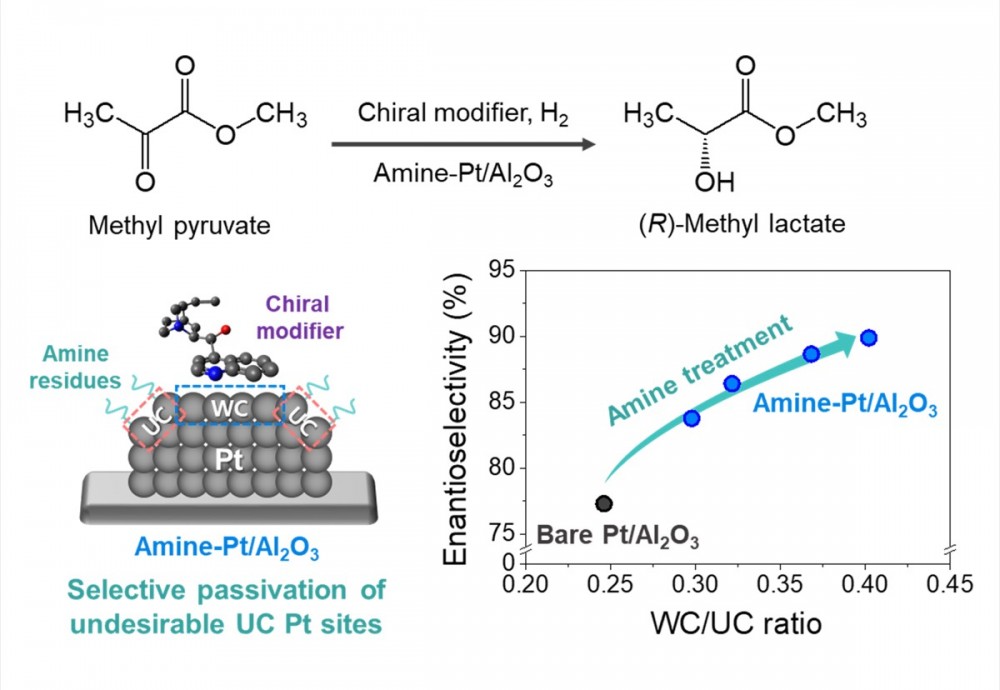
연구
Research Outcome
미래를 창조하는 포스텍 화학공학과
Designing Highly Enantioselective Heterogeneous Pt Catalysts: Selective Exposure of Active Sites via Surface Modification Using Amines
- Title of paper
- Designing Highly Enantioselective Heterogeneous Pt Catalysts: Selective Exposure of Active Sites via Surface Modification Using Amines
- Author
- [윤용주교수 연구실] 고성능 카이랄 이성질체 선택적 불균일계 촉매 개발
- Publication in journal
- ACS Catalysis 2024, 14, 4, 2620-2630
- Publication date
- 20240216
[Abstract]
Surface modification of metal nanoparticles (NPs) with organic molecules has attracted considerable attention as an effective methodology for designing highly selective heterogeneous catalysts. In this paper, we propose a simple post-treatment strategy involving the mixing of bare Pt/Al2O3 with amines and subsequent heat treatment for preparing highly enantioselective heterogeneous catalysts for the hydrogenation of α-keto esters. Notably, treating the Pt catalyst with oleylamine (OAm) yielded a catalyst possessing considerably enhanced catalytic activity and enantioselectivity under various hydrogen pressure conditions. The OAm-treated Pt catalyst also showed high enantioselectivity over 10 consecutive cycles. Under the optimized reaction conditions, the OAm-treated
Pt catalyst exhibited an enantiomeric excess (ee) of 95%, which was 15% higher than that of an unmodified Pt catalyst. Surface characterization revealed that the ratio of active sites exposed on the Pt surface can be controlled by varying the amount of the added OAm during the treatment. Specifically, the preferential passivation of under-coordinated sites of Pt NPs by the remaining OAm residues after heat treatment increased the ratio of exposed well-coordinated Pt sites, which are suitable for the stable adsorption of a chiral modifier (cinchonidine). Quantitative site fraction analysis using infrared spectroscopic studies revealed a positive linear correlation between the ee and the ratio of exposed terrace Pt sites, confirming the promoting effect of the OAm treatment on enantioselectivity. Moreover, the versatility of this strategy was demonstrated for the Pt catalysts treated with a variety of amines in enantioselective hydrogenation. These findings provide a direction for regulating the selective exposure of specific active sites using simple surface treatment to develop highly efficient heterogeneous catalysts.




